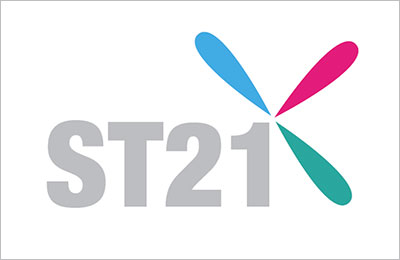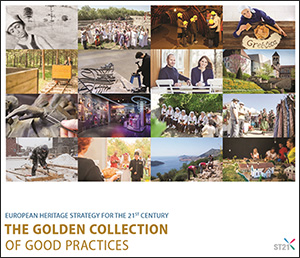Location of the initiative:

Relation to Strategy 21 Recommendations:
Time span of the initiative:
Start Date: 2013 / End Date: 2017
Motivation / Methodology
The project is implemented within the framework of the Agreement on Collaboration between the National Agency for Cultural Heritage Preservation of Georgia and the Norwegian Directorate for Cultural Heritage.
The Georgian Cultural Heritage Database Management System and GIS Portal is an innovative, contemporary system of international standards, which offers to the country a new, structured informational space for managing cultural heritage.
Through the above system various state agencies will have access to complex information on cultural heritage monuments/sites, on their precise location and territories. In addition, it will help to properly manage planned or current projects within the country from the perspective of cultural heritage.
Establishment of the Cultural Heritage National Database Management System, its integration in the united information system of public administration and ensuring its availability for various state agencies and the public, is one of the priority directions for the implementation of the system.
The System and GIS Portal comprises information on existing cultural heritage monuments/sites in the country, their protection zones, murals, stone carvings, as well as movable cultural values, stored in museums and museum-reserves under the National Agency for Cultural Heritage Preservation of Georgia.
Spatial and attributive data related to cultural heritage provides important materials for state agencies as well as researchers of cultural heritage as well as representatives from various fields. Promulgation of baseline information on cultural heritage through the GIS portal will enable the public to obtain, study and analyse the above information.
It is important that the system provides the opportunity to fill in and update the information on cultural heritage monuments and sites, from anywhere in the world, in the interactive mode.
EU Commission standard (INSPIRE), as well as similar experiences of Norway, Denmark, UK, USA and other leading countries have been analysed in the process of system elaboration. Georgian and Norwegian experts have been jointly working on the system for several years in the format of business and study visits.
Elaboration, development and management of the Georgian Cultural Heritage Database Management System and GIS Portal is carried out by the Informational Systems Unit – GIS complex data management team of the National Agency for Cultural Heritage Preservation of Georgia.
Obstacles / Barriers
A lack of understanding of the importance of the establishment of such a system was the main problematical issue at the beginning of the project’s implementation.
Therefore, it was a big challenge to establish the collaboration platform between the other public institutions - responsible for gathering and dissemination of data. As a result of years of negotiations, the memorandum on the exchanging the Geo data has been signed between the National Agency for Cultural Heritage Preservation of Georgia and the Public registry of Georgia.
Another challenge was to activate the particular field institutions and experts to upload all the results of their researches/activities related to the Cultural Heritage in the Data Base. For this reason, the special training platform has been established at the National Agency to increase the professional’s abilities of working in the database.
The lack of the existing information (including the GIS co-ordinates and descriptions, photo and graphical documentation) of thousands of cultural heritage assets (movable and immovable) was problematic in terms of providing the relevant services to all stakeholders and the wider interested audience. All over the country the large-scale re-inventory programme of cultural heritage is being implemented to improve the accuracy of the exiting data in the Geo database.
Change / Impact
Unified GIS database and GIS portal of cultural heritage of Georgia is completed, which provides new opportunities for users regarding systematization, management and sharing information; the database is an innovative system which offers the country a new kind of organised information space for managing cultural heritage.
The system allows various governmental institutions to have access to complex information related to cultural heritage monuments/sites, their exact locations and areas, which will facilitate proper management of current or planned projects related to cultural heritage.
The cultural heritage database management GIS system was created to improve management and the protection of the field;
The Unified cultural heritage GIS database acquired particular importance after the amendments to local Self-Government Code approved in 2014, when 70 self-governing cities were created, and they became to some extent responsible for cultural heritage issues. It was this instrument through which cultural heritage ended up being ready for the process of decentralization, specifically, for sharing authorization across the country;
Up to 1000 users (including state representatives, regional and municipal structures and organisations) were trained in the course of the project and started using the cultural heritage database management GIS system; the specialized course of training in documentation for cultural heritage database management GIS system, created and implemented in the framework of the project will contribute immensely to the development of capacities of specialists and students of this field;
The unified GIS database provides a basis for the application of cultural heritage resources in the context of the country’s sustainable social-economic development;
the created universal instrument of management allows the country to manage cultural heritage-related processes ranging from making inventory of cultural values to using their role in social-economic development projects more efficiently. It makes the process of decision-making more effective at any management level;
unified GIS database and GIS portal are important with regards to the implementation of international standards in the field of cultural heritage management and ensuring access to information on cultural heritage, which, in turn, promotes raising public awareness;
the project ‘Creation and Further Development of Georgian Cultural Heritage Database Management System and GIS Portal’, successfully accomplished in 2013-2017 created a basis for a new stage of cooperation; in the framework of this cooperation, from Fall, 2018 the Norwegian Mapping Authority, National Agency of Public Registry and National Agency for Cultural Heritage Preservation of Georgia initiated the new project “Georgian-Norwegian collaboration on geographic information sharing and standardization of cultural heritage data in Georgia”. Through this project, we are considering using the cultural heritage database and GIS portal, to effectively disseminate cultural heritage data to Georgian national agencies, regional and local bodies, as well as private users. This is to be done through data sharing services, and according to the National Spatial Data Infrastructure (NSDI) of Georgia by using the National Agency of Public Registry’s (NAPR) Georgian National Spatial Data Infrastructure and Metadata Specification of 2015, revised in 2016. The metadata profile is created so that it meets the INSPIRE metadata requirements, as well as ISO standard requirements, in particular, ISO 19115-1:2014. Also, the sharing of the data will require standardization of the geographic cultural heritage data, and this standardisation will use the general types for Georgia. Furthermore, the application of the NSDI framework on cultural heritage data is believed to have a positive effect in promoting the development of the NSDI, and inspiring other producers of public data to follow suit.
Lessons learned
During the implementation of the project the following gaps have been revealed:
· The inaccuracy of the part of the data on the identified cultural heritage assets;
· The necessity to improve the methodology and techniques of identification, inventory and documentary of cultural heritage;
· Using the new methodology and techniques, the necessity of provision the re-inventory and documentary of the cultural heritage assets. The necessity of the improvement of the provision of the registry of cultural heritage. The established “Georgian Cultural Heritage Database Management System and GIS Portal” has been turned into the main instrument to provide the competent accurate and verified information about the cultural heritage assets to all interested organisations/institutions on time.
Online resources
https://www.facebook.com/georgianheritage/?epa=SEARCH_BOX
Contact information
Vardzelashvili Manana
National Agency for Cultural Heritage Preservation of Georgia
[email protected]
heritagesites.ge
memkvidreoba.gov.ge
Source of financing
Financing details
The main financial means have been provided by the Ministry of Foreign Affairs of Norway; The National Agency for Cultural Heritage Preservation of Georgia provided the co-funding within the Annual programme on cultural heritage.





